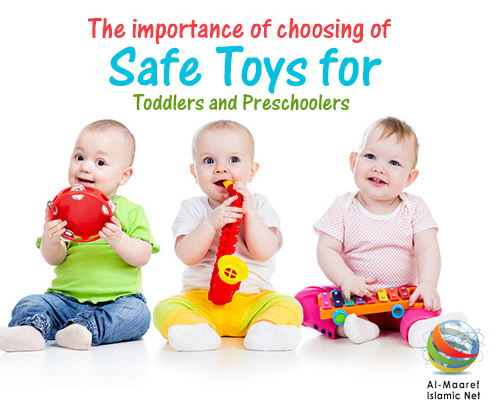Be A Model To Your Children
Actions speak louder than words. No pieces of advice of a parent refrains child from backbiting if the child often hears the parents backbiting themselves. When the child is exposed to these vices, it is very likely that he will grow up following the same. A good example from the parent works even without words. Although it may seem a huge task to be able to be a good model for the child, parents should know that it is the only way they can really teach their children. No other way is as effective as mentioned.
Relate Stories
Stories are a very appealing way to teach lessons. The Qur’an says: ﴾In their narrations there is certainly a lesson for men of understanding.﴿(Holy Qur’an 12:111)
Children are especially fascinated by stories. They can become absorbed in a story without realizing that they are learning some lessons. Parents should encourage them read Islamic and moral books.
Questions And Answers
Children ask a lot of questions. Sometimes parents may lack the answers and must admit to look it up. But it is unfair to ignore the questions or dismiss them as unimportant. The more they ask the more they learn. An interest in his question and confusions will help the child develop his mental and intellectual abilities. Encourage the child to learn more by asking more.
Some Don’ts In Religious Training
- Don’t do it harshly. Getting angry with the child and forcing him leads to resentment. It is better to explain, and discuss with the child.
- Don’t overdo it. Teach religion in moderate doses. Overdoing it can be harmful and can be a burden for a child.
- Don’t teach Islam to show off. Children should not be taught to be religious, so parents can be proud of them in the community.
- Don’t make Islam a burden. Some parents believe that Islam is too difficult. Although they practice it, they pass on the feeling that to them hijab, fasting and other such rules are really a great burden this, will discourage the child.
A Child’s Need For Love
The need to be loved is the unexceptionally strong in all human beings. From childhood to old age, humans want to be loved by those around them. Love connects people in the strongest ways. It produces care and concern, without which no one would take the responsibility of looking after others. Love makes the difficulties of life bearable, and helps ease the struggles of life. The love given to a child is more important than any other material goods the family can provide.
Life cannot just run on cold and hard rules. The warmth of love is necessary to infuse spirit and joy in life. A home without love, however orderly and organized, has not fulfilled its true purpose. A family is not just a micro-organization where the needs of members are met. This could be done by a state run facility. A family’s outstanding characteristic is that members love one another, and this emotion binds them together.
Love or lack of it has a profound effect on the lives of children. Their mental capabilities, their fluency of speech, their observations and deductions on life, are all affected by it. That is why Islam emphasizes the display of love to one’s family. The prophet (peace be upon him and his household) loved his grandsons dearly, and often showed great affection to them in public. He encouraged his companions to show affection to their children.
Effects Of Love
A child who knows he is loved has a great heed start on life:
1. He is happier and calmer. A child, who is at peace with the world, is able to bear disappointments better. Without love, a child’s world is bleak. Such a child often resorts to misbehavior to get attention.
2. He is more confident of himself. He knows that he is worthy of being loved, and that is a great boost to his self-esteem.
3. He can form better relationships with others. A loving relationship with the parent makes the child a kinder, more loving person. Lack of love hardens the heart.
4. Has a positive outlook on life. A child who is loved looks at the world with enthusiasm. He will be eager to try and experience new things. A loveless home produces a negative outlook.
5. The child would be more responsive to what the parents tell him.
To be continued ...
* By: Aisha Mutuku, Dar-Es-Salaam, Tanzania




















